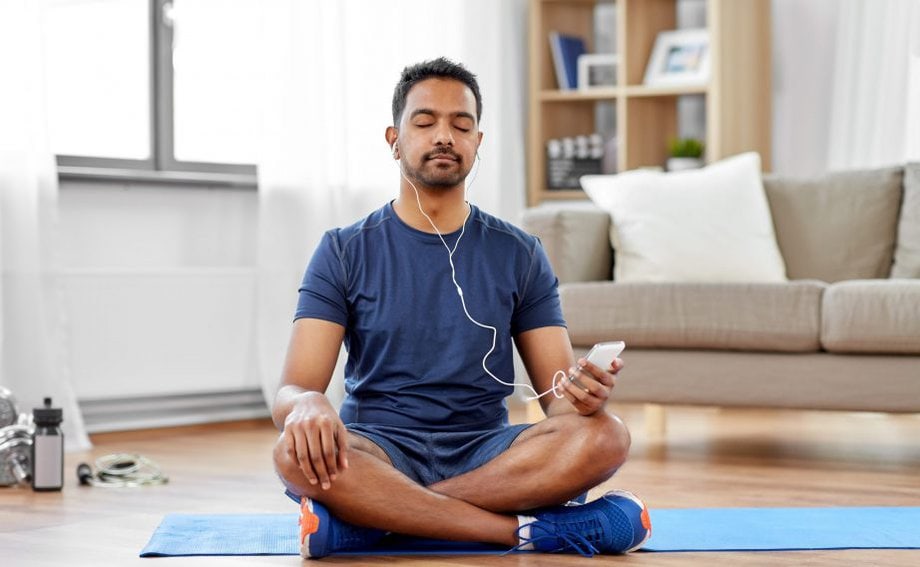Incorporating Progressive Muscle Relaxation Into Your Daily Routine

Are you feeling stressed and overwhelmed? Incorporating progressive muscle relaxation into your daily routine can help you find relief and restore a sense of calm.
By actively engaging your muscles and then releasing tension, you can experience the physical and mental benefits of this practice.
In this article, we will guide you through the process of starting and integrating progressive muscle relaxation into your morning and bedtime routines.
Get ready to unwind and improve your well-being.
Key Takeaways
- Start your morning routine with relaxation exercises
- Tense and release each muscle group from toes to head
- Incorporate mindfulness and be fully present in the moment
- Set a positive tone for the rest of the day
The Benefits of Progressive Muscle Relaxation
The benefits of progressive muscle relaxation include reducing stress and promoting relaxation. This technique is backed by science, as it works by tensing and then releasing different muscle groups in your body. By doing so, you can become more aware of the physical sensations associated with muscle tension and learn to let go of that tension.
Progressive muscle relaxation is not only effective for managing stress, but it can also be helpful for pain management. By practicing this technique regularly, you can reduce muscle tension and alleviate discomfort caused by chronic pain.
How to Start Incorporating Progressive Muscle Relaxation
To start adding progressive muscle relaxation to your daily schedule, begin by finding a quiet and comfortable space. This is where you will be able to fully focus on your body and engage in the relaxation exercises.
Once you have found your space, sit or lie down in a comfortable position. Take a few deep breaths to center yourself and bring your attention to the present moment.
Now, start by tensing and releasing each muscle group in your body, starting from your toes and working your way up to your head. As you tense each muscle group, hold the tension for a few seconds, and then release it, allowing the muscles to relax completely.
Repeat this process for each muscle group, paying attention to any areas of tension or discomfort.
Progressive Muscle Relaxation Techniques for Stress Relief
Start by finding a quiet and comfortable space where you can fully focus on your body and engage in relaxation exercises.
Progressive muscle relaxation exercises are a great way to relieve stress and anxiety. By intentionally tensing and then releasing each muscle group in your body, you can promote a deep sense of relaxation.
Begin by sitting or lying down in a comfortable position. Close your eyes and take a few deep breaths, allowing your body to relax with each exhale.
Start with your toes and slowly work your way up, tensing each muscle group for a few seconds before releasing. Focus on the sensation of tension leaving your body as you let go.
Progressive muscle relaxation for anxiety can be an effective tool in managing stress and promoting overall well-being.
Integrating Progressive Muscle Relaxation Into Your Morning Routine
Begin your morning routine by integrating progressive muscle relaxation exercises for stress relief. By incorporating relaxation techniques into your morning, you can set a positive tone for the rest of your day.
Take a few moments to find a quiet and comfortable space where you can focus on your body and mind. Start by tensing and releasing each muscle group, from your toes to your head, allowing the tension to melt away.
As you practice this technique, remember to also incorporate mindfulness. Be fully present in the moment, paying attention to your breath and the sensations in your body. This combination of progressive muscle relaxation and mindfulness can help reduce stress, increase relaxation, and improve overall well-being.
Make it a priority to integrate these techniques into your morning routine and experience the benefits throughout your day.
Progressive Muscle Relaxation for Better Sleep
By practicing progressive muscle relaxation exercises, you can improve the quality of your sleep. Progressive muscle relaxation is not only beneficial for anxiety management and pain reduction, but it can also help calm your mind and body, leading to a more restful night’s sleep.
When you engage in progressive muscle relaxation before bedtime, you actively release tension and stress from your muscles, allowing your body to relax and prepare for sleep. As you systematically tense and then release each muscle group, you become more aware of the sensations in your body, promoting a sense of mindfulness and relaxation.
Frequently Asked Questions
Can Progressive Muscle Relaxation Help With Chronic Pain Management?
Yes, progressive muscle relaxation can help manage chronic pain. It is effective and offers benefits for pain relief. You should consider incorporating it into your daily routine for better management of your chronic pain.
Is Progressive Muscle Relaxation Suitable for Children?
Progressive muscle relaxation is suitable for children too. It helps them reduce stress and anxiety. Just like adults, children can benefit from adapting progressive muscle relaxation techniques to their age group.
Can Progressive Muscle Relaxation Be Practiced During Pregnancy?
During pregnancy, you may experience muscle tension. Progressive muscle relaxation is a beneficial practice to alleviate this tension. It helps you relax and reduces stress, promoting overall well-being for both you and your baby.
Are There Any Specific Contraindications or Precautions to Consider Before Practicing Progressive Muscle Relaxation?
Before practicing progressive muscle relaxation, it is important to consider any precautions or contraindications. Speak with a healthcare professional to ensure it is safe for you, as certain conditions may require modified techniques or alternative relaxation methods.
Can Progressive Muscle Relaxation Be Used as a Complementary Therapy for Anxiety Disorders?
Yes, progressive muscle relaxation can be used as a complementary therapy for anxiety disorders. It is effective in reducing stress and improving sleep quality. Try incorporating it into your daily routine for maximum benefits.








